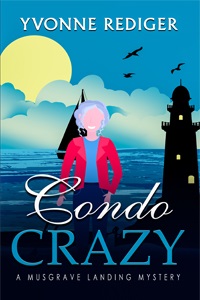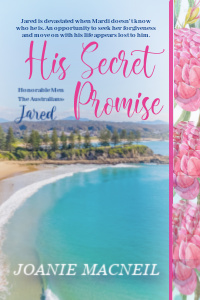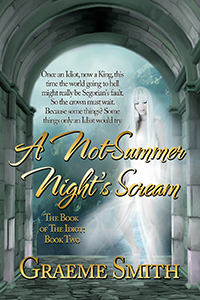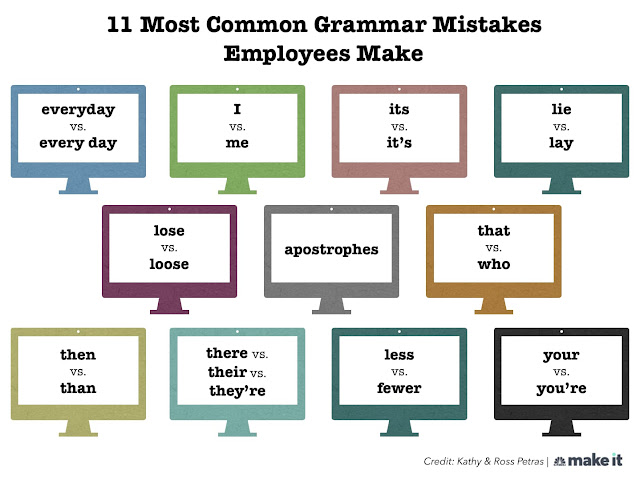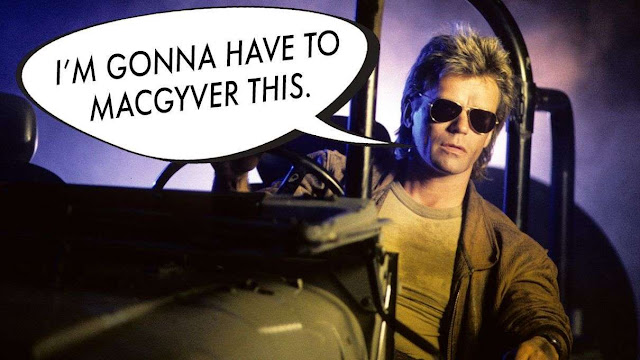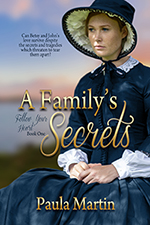Monday, March 7, 2022
The Importance of Family Stories by Eileen O'Finlan
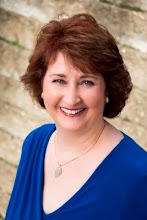 Eileen O’Finlan was a member of the Worcester Writers Workshop for many years and now hosts a writing group at her home in Holden.
Kelegeen, published by BWL Publishing, is her debut novel. She is currently working on the sequel to be titled Erin's Children set in Worcester, Massachusetts.
Eileen is a holds a Bachelor’s Degree in history and a Master’s Degree in pastoral ministry.
When not writing or working her full-time job, Eileen facilitates online courses for the University of Dayton, Ohio.
Eileen O’Finlan was a member of the Worcester Writers Workshop for many years and now hosts a writing group at her home in Holden.
Kelegeen, published by BWL Publishing, is her debut novel. She is currently working on the sequel to be titled Erin's Children set in Worcester, Massachusetts.
Eileen is a holds a Bachelor’s Degree in history and a Master’s Degree in pastoral ministry.
When not writing or working her full-time job, Eileen facilitates online courses for the University of Dayton, Ohio.
Saturday, March 5, 2022
Elizabeth Goudge Best Selling Author ~ 1900 - 1984 by Rosemary Morris
Elizabeth
Goudge – Best Selling Author -1900-1984
By unknown. Original
publication The Joy of The Snow by Elizabeth Goudge immediate source scanned
from book.
Recently I re-read some of
Elizabeth de Beauchamp Goudge’s acclaimed novels, which include The Little
White Horse that J.K. Rowling selected of her favourite books and one of few with a direct
influence on the Harry Potter series. (The novel won Goudge the annual Carnegie Medal of the Library Association, as the year's best children's book by
a British subject. It was her own favourite among her works.) I have also re-visited my copy of Elizabeth’s
autobiography, The Joy of The Snow. “For the millions enchanted and inspired
by Elizabeth’s THE JOY OF THE SNOW will be an enduring monument to her life’s
work. It is more than an autobiography. She tells us, in poignant, candid
detail, the story of her spiritual, and physical journey from a golden
Edwardian childhood…and gives a glimpse of the deeply personal inspiration
behind some of the best loved writing of our time.”
Elizabeth’s parents
were Reverend Henry Goudge, who taught in the cathedral school in Wells,
Somerset, and Miss Ida Collenette, who met in Guernsey. Elizabeth loved her holidays
at her maternal grandparents’ home on the Channel Islands. She lived in Wells
until eleven years old when her father became a canon at Ely Cathedral and principal
of the Theological College. Ely, was Elizabeth’s “Home of homes.” In 1923, her
father accepted the prestigious post of Regius Professor of Divinity at Oxford,
and she was uprooted from Ely.
First educated at home
by a governess, then sent to a boarding school in Hampshire in 1914, she was
taught ‘how to run a big house, arrange flowers and be presented at court. However, she had a teacher who introduced
English literature, especially Shakespeare. It also familiarised her with the
New Forest and the sea marshes at Keyhaven, fodder for her novels. There were
few genteel ways for a young lady to earn a living so her parents insisted on
her attending an Art College to learn crafts she could teach to others. She
liked weaving, leather work etc., and wrote in her spare time.
The only child of a
loving family, Elizabeth enjoyed a privileged life, but was neither
well-educated nor prepared for the onslaught of the 20th century,
yet places where she had lived, would be the settings in her books. Her first published
novel, Island Magic, set in Guernsey, was a great success in England and
America. I enjoyed it as much when I read it for the second time as I did when
I read it years ago. It incorporates Elizabeth’s invalid mother’s memories,
island’s folklore, and myths. In the novel she describes St Peter’s Port where
her maternal grandparents lived until they moved to a farm close to one which gave
the fictional name Bon Repos. Her characters Rachel and Andre, who live there,
are based on those grandparents she adored. The protagonists’ children, whose
external and internal lives, hopes, and dreams Elizabeth portrays so sympathetically
and vividly, that they almost leap from the page.
A founding member of
The Romantic Novelist’s Association, her next novel Green Dolphin Country
published in 1944, brought her fame, won a Literary Guild Award and a special
prize of £30,000 from Louis B. Mayer of MGM before being filmed.
Elizabeth’s gift of changing
the commonplace into a magical, wonderous world inhabited by unique characters
enthralled her fans. Her
realistic, fantasy or historical fiction intertwines, legend and myth,
spirituality and love of England that add to their appeal; She stated “As this
world becomes increasingly ugly, callous and materialistic it needs to be
reminded that the old fairy stories are rooted in truth, that imagination is of
value, that happy endings do, in fact, occur, and that the blue spring mist
that makes an ugly street look beautiful is just as real a thing as the street
itself.”
bookswelove@shaw.ca
Thursday, March 3, 2022
Ending a Book Series by Diane Bator
I hit send on Valentine's Day and submitted The Conned Lady, Book 5 of my Wild Blue Mystery series. As all writers know, every time you hit send on a book, it takes a little piece of you with it and stirs up a jungle of butterflies. This book was exactly like that – but different. The Conned Lady is the last book in the series that started my writing career.
To tell the truth, I’ve thought about ending a series
for a while now but there were so many unknowns:
·
How would I do it?
·
What would happen to my characters?
·
How hard would it be?
·
Will my readers be upset?
·
Will that mean I can never revisit
those characters again?
When I started writing Book 5, I hadn’t intended to
end the series just yet. I had plans for one more book but the characters had
other ideas. This one wrapped up so many things that it left me no option! Once
I got to the final climax, the next move was for them to all live happily ever
after. Who was I to argue with an organic, natural ending to the series?
What would happen to the characters? Life will go on
even though the readers and I will no longer be a part of it. Working out what
would happen to them next was so easy. The last chapter truly wrote itself.
I truly hope my readers are not upset. I was prepared
to struggle with that last chapter and saying good-bye to a long list of old
friends that I’ve worked with since I first started writing about their
adventures around 2010 then published in 2013 when Books We Love took a chance
on The Bookstore Lady. Characters
definitely become a part of your life and it’s hard to imagine not having a
next book to follow them around and see what they’re up to. At the same time, I
still have the freedom to use those characters in future short stories or novellas
or even a new book or series should the vision arise.
I guess for me, I think of ending this series much
like going home after a vacation. You’ve had a great time with friends but it’s
time to go home and get back to work on something else. Since I do have more
series in the works, there will always be more endings. Hopefully the next
series ender will be as smooth as this one.
Happy reading!
Diane Bator
http://bookswelove.net/bator-diane/
 Prolific author, Editor, Associate Publisher, and Book Coach. Also mom of three grown ups and two fur babies.
Prolific author, Editor, Associate Publisher, and Book Coach. Also mom of three grown ups and two fur babies.
Wednesday, March 2, 2022
Make Believe World
https://bookswelove.net/dowell-roseanne/
I live in a make-believe world. Okay, not literally, but vicariously through my characters. I decide where they live, name their towns, or sometimes I let them live in a real city/town. I prefer small towns, maybe because I’ve always wanted to live in one. I especially like towns with Victorian houses and apparently so do my characters, because I use them a lot. I often say I must have lived during the Victorian area, probably as a mean old nanny. I’m sure I wasn’t the lady of the house, and by house I mean mansion. Queen Anne Victorian homes are my favorite. I love the round turrets, all the gingerbread, and wrap-around porches. It was always my dream to buy one and restore it. Unfortunately, that wasn’t to be and I’m past the point of wanting one now.
Back to my make-believe world. I’d like to say I
choose my characters, but truthfully, they choose me. Sometimes I even get to name them, but if
they don’t like the name, well, believe me, they misbehave until I change it.
And, yes, that’s happened several times. Just because I like a name doesn’t
mean they do. The last time it happened it wasn’t even a main character. She
was only in the story for a short time, but boy was she stubborn. She refused
to talk to me and anything I wrote was garbage, better known as dreck in the
writing world.
As I’ve said previously, I write many different genres, from Women’s Fiction to Romance to Mystery and even Paranormal. Most of
my books are a combination of romance and another genre. As a reader, I’ve
always favored mystery and romance, so it only made sense to combine them. Mine would be classified as cozy mysteries,
the gory stuff takes place off scene.
I also love
ghost stories – not evil mean ghosts though. One such story is Shadows in the
Attic and another Time to Love Again. I’ve always been fascinated by ESP, hence
my story Entangled Minds – previously published as Connection of the Minds.
My character’s ages range from their mid-twenties to
middle age and into their seventies. Yes, seniors need love, too. Geriatric
Rebels is a favorite. It’s fun working
with different characters, and I especially like when they add a bit of humor.
I really form an attachment to them. Once a character chooses me, I make a
character worksheet so I know everything about them, not just what they look
like.
I love creating my characters, picking their careers,
anything from housewives, authors, teachers, floral designers, and interior
designers. Sometimes their careers play a part in the story, sometimes not. The
character in my work in progress (WIP in the writer’s world) is a former
teacher. It’s not a big part of the story, but it’s something I needed to know.
She’s a real character in the true sense of the word. She came into being in a
previous story, All in the Family. It started out with her having a small part,
but Aunt Beatrice Lulu (ABLL) grew into a big part of the story. Once I
finished that book, she popped up again and demanded her own book. Problem is,
she takes fits and goes into hiding every so often, which is where she’s at right
now and has been for some time. Sometimes she pops up for days of writing. Other
times, I get a paragraph or two. I’ve never had a character do that before.
Oh, I’ve had writer’s block a time or two, but once
I’m over it the writing flows. Not so with ABLL.
It’s also fun
describing my characters, their hair and eye color, height, even their weight. I’m
often asked if I’m a plotter or punster. I tried plotting once and ended up
blocked for almost two years. For me, plotting doesn’t work. I usually know the
beginning and end of my stories. What
happens in the middle is as much a surprise to me as it is to my readers. ABLL
is full of surprises. What that woman doesn’t get into. So even though she goes
into hiding, it’s generally worth it when she reappears. I’m not sure where she
came from, but I’m sure enjoying working with her. Okay, I’ll be honest, a
little bit of her is me, a little bit my sisters, and even my mother. She’s a
combination of all the people I love and it’s so much fun living in her make-believe world.
You can find my books at https://bookswelove.net/dowell-roseanne/
 As the second youngest of six children, I always had a vivid imagination and loved to make up stories. I often sat and daydreamed about imaginary characters and lost myself in books and make-believe worlds.
My love of writing began as a teenager, but only recently pursued it seriously. With encouragement from fellow book-club members, NEORWA and my husband, I began writing and submitting my work.
Although Satin Sheets was my first published novel, I have over forty articles and stories published in magazines such as Good Old Days, Nostalgia, and Ohio Writer along with several online publications.
Besides teaching three writing courses for Long Story School of Writing, I taught a writing course at Cuyahoga Community College.
In my spare time, I enjoys spending time with my six children, fourteen grandchildren and great grandchildren. My hobbies include ceramics, knitting, quilting, and jewelry making. But after my family, my first love is writing. I reside with my husband of forty-eight years in Northeast Ohio. You can visit my website at: http://www.roseannedowell.com
As the second youngest of six children, I always had a vivid imagination and loved to make up stories. I often sat and daydreamed about imaginary characters and lost myself in books and make-believe worlds.
My love of writing began as a teenager, but only recently pursued it seriously. With encouragement from fellow book-club members, NEORWA and my husband, I began writing and submitting my work.
Although Satin Sheets was my first published novel, I have over forty articles and stories published in magazines such as Good Old Days, Nostalgia, and Ohio Writer along with several online publications.
Besides teaching three writing courses for Long Story School of Writing, I taught a writing course at Cuyahoga Community College.
In my spare time, I enjoys spending time with my six children, fourteen grandchildren and great grandchildren. My hobbies include ceramics, knitting, quilting, and jewelry making. But after my family, my first love is writing. I reside with my husband of forty-eight years in Northeast Ohio. You can visit my website at: http://www.roseannedowell.com
Tuesday, March 1, 2022
BWL Publishing Inc. New Releases, books to take your mind off all the Roman troubles and the Ides of March
According to Wikipedia, In modern times, the Ides of March is best known as the date on which Julius Caesar was assassinated in 44 BC. Caesar was stabbed to death at a meeting of the Senate. This meeting is famously dramatised in William Shakespeare's play Julius Caesar, when Caesar is warned by the soothsayer to "beware the Ides of March."[20][21] The Roman biographer Suetonius[22] identifies the "seer" as a haruspex named Spurinna. Some fascinating historical research presents itself for our historical authors.
But at BWL Publishing March is another one of our Release Dates, and to take your mind off all that doom and gloom from the Romans we're delighted to present four more fabulous BWL Releases that we're positive you're going to enjoy.
NEW RELEASES FOR MARCH 2022
Monday, February 28, 2022
Honoring Ukrainian Courage, Culture, Devotion, and Life By Connie Vines
All of the world is focused on current events at the moment. Therefore, my blog post will feature my 'Slovic' background, to honor the courage and devotion to democracy by the Ukrainian people.
Like many whose ancestors were able to immigrate before the time of the Iron Curtain, I also came to not all of their extended family members chose/or were able to make the journey.
My maternal grandmother's family traveled from Bohemia/Czechoslovica via a ship and settled in Chicago. Many of my childhood memories are of the Slovic culture, foods, nursery rhymes, fairytales, music, dance, and the drive to succeed. Hard work, Family, Faith, and honoring those who came before them, was part of daily life.
Where did Ukraine originate from?
The history of Ukrainian nationality can be traced back to the kingdom of Kievan Rus' of the 9th to 12th centuries. It was the predecessor state to what would eventually become the Eastern Slavic nations of Belarus, Russia, and Ukraine.
Famous Ukraine Story
"The Mitten” is a story of a little boy that lost his mitten in the snow. Soon after, an animal finds its way into the glove to seek warmth and shelter. It doesn't take long until many more animals have the same idea. The mitten becomes stretched out and cramped for space.
Traditional Crafts
Petrykivka painting (or simply "Petrykivka") is a traditional Ukrainian decorative painting style, originating from the village of Petrykivka in Dnipropetrovsk oblast of Ukraine, where it was traditionally used to decorate house walls and everyday household items. The earliest known examples of this style date from the 18th century, but it continues to thrive and develop as a modern art form.
The distinctive features of this folk art style are its flower patterns, distinctive brush techniques, and its traditionally white background (contemporary painters, however, often work on black, green, red, or blue backgrounds. (Wikipedia)
Traditional Clothes
Pinterest: Traditional Clothing and Embroidery
Traditional Food
(Ukrainian hostesses cook this dish with sweet potatoes as a dessert.)
Potato Pancakes
Ingredients:
6 potatoes
1 egg
3 tablespoons of flour
1 onion
sunflower oil
1 package of sour cream
Instructions:
Peel potatoes and onion and grate them. Beat an egg and combine it with potato. Add salt, flour and mix everything properly.
Heat the sunflower oil in the pan and pour the potato mixture in the form of round pancakes. Fry until one side of the pancake until golden, then and then turn over.
Serve a dab of sour cream.
I will close with a Ukrainian Proverb:
Take care, my dear friends and readers,
Connie
XOXO
Remember: All of my books are on sale at Smashwords this month!!
https://bookswelove.net/vines-connie/
https://books2read.com/Lynx
https://books2read.com/Gumbo-Ya-Ya
https://books2read.com/Here-Today-Zombie-Tomorrow
Sunday, February 27, 2022
WHAT’S HAPPENING TO THE ENGLISH LANGUAGE? - by Vijaya Schartz
 |
| Azura Chronicles award-winning scifi-romance series |
Strong Heroines, Brave Heroes, cats
http://www.vijayaschartz.com
amazon - B&N - Smashwords - Kobo - FB
Saturday, February 26, 2022
A little more about the 1860s in Australia. Tricia McGill
 |
| Find this and all my other BWL books on my author page |
In these
weird days where thoughts of Covid lie heavily upon us, and technology changes
by the hour let alone by the day, we spare little thought about the struggles
and lives of the ones who came before us—those heroic souls who forged a life
for themselves and others in the early years of settlement. Of course, I am
concentrating on this fledgling colony of Australia. By the 1860s most major
towns had been settled. Being an avid researcher I am now deep in this time
period. Men set out in search of gold as well as land to call their own. It
seems the 1860s was dominated by the struggles of small land holders (called
selectors), along with the miners. These settlers were intent on persuading the
government to gain control of the land from the squatters who had occupied
large areas of Crown land either under a licence or lease. They believed it was
time to make this Crown land available for farming. These selectors faced much
resistance from the squatters who had found ways to keep the most fertile land
for themselves.
Thus, this
high demand for land caught the eye of those interested in exploration of the
more regional and remote parts of the continent. They set out to find rich
pastures for farming along with clean and fast-flowing water. Better routes
between colonies needed to be established, and to better serve this an Overland
Telegraph Line was essential. Explorers like Charles Stuart, Robert O’Hara Burke
and William John Wills led expeditions to discover arable land. It was these
intrepid explorers and others who mapped routes between the far-flung
settlements. To cross this vast continent for the first time was a dangerous
quest and proved to be fatal for some.
Burke & Wills were the first Europeans to cross Australia from south to north. This expedition is probably one known by most Australians, perhaps because of its sad ending. Both were inexperienced—Burke being a police investigator and Wills a surveyor and meteorologist. Burke was chosen to lead the expedition across the inhospitable interior so that Victoria could win a reward posted by the government, who wanted to build a telegraph line from Adelaide to the northern coast of Australia. Their party left Melbourne on August 20, 1860, with horses, Indian camels and 3 drivers. They followed the Darling River and then headed north to the Gulf of Carpentaria. The expedition included John King, Charles Gray, and William Brahe. Brahe remained at a base camp at Cooper’s Creek waiting for more men, who were delayed by months. Quarrels between the men over bad timing and spring rains marred the trip. They reached the mouth of the Flinders River (at the Gulf of Carpentaria) on February 9, 1861. Low on supplies they turned around. Gray soon died from fatigue. Burke, Wills, and King were very weak when they returned to the camp at Cooper’s Creek on April 21, 1861. Heading home hours behind Brahe, a group of Aborigines gave them food and water. They later were forced to kill and eat their last two camels. After more than a month of traveling since leaving Cooper’s Creek, they had wandered back to it. They missed Brahe, who had returned to the camp to check for them. Burke, Wills, and King again wandered off, but Wills became weak, so they left him with some of the food. Soon after that, Burke died (June 20, 1861). King returned for Wills but found him dead. On September 18, 1861, King was rescued by Alfred Howitt and his party who had searched for the lost expedition. Charles Sturt led an expedition down the Murrabiggee and Murray Rivers and his exploration is considered one of the greatest in Australian history. The expedition disclosed extensive areas of land for future development in New South Wales and South Australia
He later led an expedition north from Adelaide to the edge of the Simpson Desert. Although he discovered no fertile land and was eventually driven back by heat and scurvy, his party was the first to penetrate the centre of the continent.
New industries such as pearling began in Western Australia and a centre in Broome was established. The cities in all colonies grew and the arts flourished with the publication of books and poems about Australia by native-born Australians; artists born overseas and the native-born drew the Australian landscape and colonial personalities. Albert Namatjira was one of Australia’s greatest artists. Blending traditional use of colour with Western-style landscapes brought him fame and citizenship in a time when Aboriginal people had few rights. His early works transmitted the same spiritual connection with the land as more traditional Aboriginal art, and he represented his love of trees through lovingly rendered portrait-like paintings. Tragically he was just 57 when he died.
 |
| Find excerpts and reviews of all my books on my web page |
 I was born in London but moved to Australia with my husband many moons ago. I always had the urge to write full time but wasn't able to fulfill this dream until I retired early from the fashion industry. Most of my contemporary romances are set in Victoria where I live or Tasmania my second favourite state. I have always loved to read Time Travels so it was obvious that I would like to write them. I love the research entailed in writing them and also historicals. All my books are with publisher Books We Love, and I am proud to boast that I was no 1 on the BWL best sellers list 2015/2016 and in the top 10 best selling authors in 2017. My greatest achievement was winning the Australian Romance Writers Book of the Year award with my Traces of Dreams that is now re-titled Remnants of Dreams. I am a fervent animal lover and support various charities that do their best to help animals in need around the world. I also volunteer for a local community group helping disabled people with their computers.
I was born in London but moved to Australia with my husband many moons ago. I always had the urge to write full time but wasn't able to fulfill this dream until I retired early from the fashion industry. Most of my contemporary romances are set in Victoria where I live or Tasmania my second favourite state. I have always loved to read Time Travels so it was obvious that I would like to write them. I love the research entailed in writing them and also historicals. All my books are with publisher Books We Love, and I am proud to boast that I was no 1 on the BWL best sellers list 2015/2016 and in the top 10 best selling authors in 2017. My greatest achievement was winning the Australian Romance Writers Book of the Year award with my Traces of Dreams that is now re-titled Remnants of Dreams. I am a fervent animal lover and support various charities that do their best to help animals in need around the world. I also volunteer for a local community group helping disabled people with their computers.
Friday, February 25, 2022
First Lines
It is a truth universally acknowledged, that a single man in possession of a good fortune, must be in want of a wife.
However little known
the feelings or views of such a man may be on his first entering a
neighbourhood, this truth is so well fixed in the minds of the surrounding
families that he is considered as the rightful property of some one or other of
their daughters.
"My dear Mr.
Bennet," said his lady to him one day, "have you heard that
Netherfield Park is let at last?"
A modern editor would probably use a red pen on Jane
Austen’s first two paragraphs, both of which are author statements. He/she might
say the story should begin at the third paragraph – or maybe even later in the
conversation between Mrs. Bennet and her husband. Thus we would lose one of the
most quoted ‘first lines’ of any novel.
I’ve sometimes wondered about the emphasis that the ‘advice
givers’ put on the first lines of a story. The first line, ‘they’ say, must
hook the reader, but is that true? Do readers really get pulled in by the first line of a story? Do they decide
whether to buy or not to buy based on the opening sentence or paragraph?
It seems to me that this advice is based on an image of
someone standing in a bookstore and picking up a book. In that scenario, the cover,
the back cover blurb, and the first few lines of a book are probably the most important
‘hooks’ for a reader.
However, in this digital age and with Amazon’s facility of
‘click to look inside’ i.e. a sneak peek at the first few pages of a novel, the
reader is sitting at a computer or using a laptop or tablet. They have more
time – and therefore, in all probability, will read more than the average
person standing in a bookstore.
I’ve done this many times before downloading books to my
Kindle, and have usually read far more than the first sentence or even the
first page (unless that happens to be riddled with grammatical errors or typos
etc). Therefore I’d hazard a guess that the majority of readers with e-readers will
make their decision based on part or even the whole of the Amazon excerpt, and
not just the first line or paragraph.
Therefore, instead of agonising over our first lines,
perhaps we should be thinking more about whether our first few pages will hook
our potential readers into downloading our books. Those pages should pull them in
somehow and stimulate their interest and curiosity about the story. It’s been
said that a character doesn’t come to life for the reader until he/she speaks,
so a conversation of some kind on the first page can be a good way of attracting
a reader.
In my experience, as a reader rather than a writer, any long
introspection or back story at the start of a novel is a big turn-off. Neither
should the first page contain a lengthy description of a place. A couple of
well-chosen sentences can be equally effective.
Finally, while it’s not essential for the main protagonists
to meet on the first page or even for some kind of ‘conflict’ to be introduced immediately,
it’s probably better to introduce some kind of surprise (pleasant or otherwise)
or an unexpected event for the main protagonist in the first couple of pages.
I’d be interested in your thoughts about the first few pages of a novel – what attracts you and what puts you off?
Find me on Facebook: www.facebook.com/paulamartinromances
Link to my Amazon author page: author.to/PMamazon
Thursday, February 24, 2022
Virtual Writing Conferences VS Physical Writing Conferences by Joan Donaldson-Yarmey
https://www.bookswelove.com/donaldson-yarmey-joan/
 I was born in New Westminster B.C. and raised in Edmonton.I have worked as a bartender, cashier, bank teller, bookkkeeper, printing press operator, meat wrapper, gold prospector, house renovator, and nursing attendant. I have had numerous travel and historical articles published and wrote seven travel books on Alberta, B.C. and the Yukon and Alaska that were published through Lone Pine Publishing in Edmonton.
One of my favourite pasttimes is reading especially mystery novels and I have now turned my writing skills to fiction. However, I have not ventured far from my writing roots. The main character in my Travelling Detective Series is a travel writer who somehow manages to get drawn into solving mysteries while she is researching her articles for travel magazines. This way, the reader is able to take the book on holidays and solve a mystery at the same time.
Illegally Dead is the first novel of the series and The Only Shadow In The House is the second. The third Whistler's Murder came out in August 2011 as an e-book through Books We Love. It can be purchased as an e-book and a paperback through Amazon.
i live on a small acreage in the Alberni Valley on Vancouver Island.
I was born in New Westminster B.C. and raised in Edmonton.I have worked as a bartender, cashier, bank teller, bookkkeeper, printing press operator, meat wrapper, gold prospector, house renovator, and nursing attendant. I have had numerous travel and historical articles published and wrote seven travel books on Alberta, B.C. and the Yukon and Alaska that were published through Lone Pine Publishing in Edmonton.
One of my favourite pasttimes is reading especially mystery novels and I have now turned my writing skills to fiction. However, I have not ventured far from my writing roots. The main character in my Travelling Detective Series is a travel writer who somehow manages to get drawn into solving mysteries while she is researching her articles for travel magazines. This way, the reader is able to take the book on holidays and solve a mystery at the same time.
Illegally Dead is the first novel of the series and The Only Shadow In The House is the second. The third Whistler's Murder came out in August 2011 as an e-book through Books We Love. It can be purchased as an e-book and a paperback through Amazon.
i live on a small acreage in the Alberni Valley on Vancouver Island.
Wednesday, February 23, 2022
February new books from BWL Publishing Inc.
RELEASED FEBRUARY 2022
CLICK THE BOOK COVERS FOR DETAILS AND PURCHASE INFORMATION
Visit https://bwlpublishing.ca for the best in genre fiction
 |
 |
 |
||||||||||||||||||||||||||||||||||||||||||||||||||||||||||||||||||||||||||||||||||||||||||||||||||||||||||||||||||||||||||||||||||||||||||||||||||||||||||||||||||||||||||||||||||||||||||||||||||||||||||||||||||||||||||||||||||||||
 |
Popular Posts
-
Deadly Undertaking Click here to purchase ‘Tis the season of the year when the transformation occurs from the darkness of winter to th...
-
I tied my manuscript up in an electronic bow and sent the final version off to BWL Publishing. Let me tell you, there were days during...
-
AVAILABLE HERE I have a cousin in Australia who loves to travel. She and her husband are currently in Vietnam, and the photographs she share...
-
Goodbye winter. Hello spring. Another round of setting clocks ahead is behind us as well as all the rant on social media about why we co...
-
Sometimes I wonder how much one person’s voice can actually help when “fighting the good fight” against what seems like ...
-
Happy Belated Birthday, Dear Wolfgang! 261 years young & still delighting audiences... http://www.bookswelove.net/autho...
-
The cover of the Ontario offering for the Canadian Historical Mysteries Collection from BWL Publishing to be released November 2024 To fin...
-
Click here for purchase options for this award-winning series. https://www.bookswelove.net/kavanagh-j-c/ In last month's blog, I told ...
-
Click here to purchase. Winner of Best Historical for 2023 How do I make a German officer during WWII sympathetic? I make him a real pers...
-
Please click this link for author and book information Last month I visited the Canadian War Museu...









